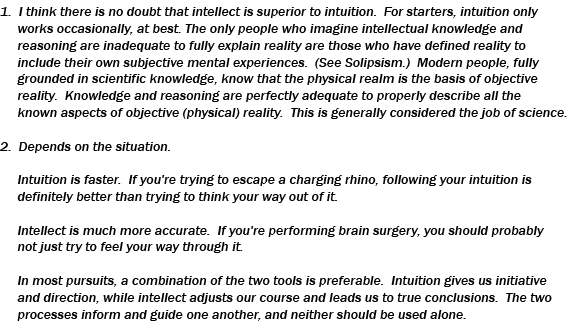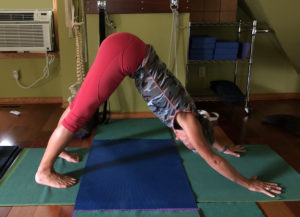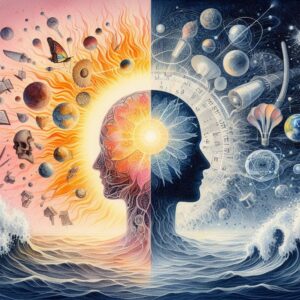There is no logical way to the discovery of these elemental laws. There is only the way of intuition, which is helped by a feeling for the order lying behind the appearance. … The only real valuable thing is intuition. Albert Einstein
One of the great life lessons emerging from humanity’s experience of the New Normal iVUCA business environment is the tremendous added value necessitated by collaborative efforts to solve ‘wicked societal problems’. While in these collaborative partnerships, we recognize the impact of diverse perspectives on the creative output’s quality and quantity. For the most part, humans love the creative process but in our interactions we still find ourselves challenged with our decision making processes; in particular, the relationship between intuition, impulse and intellect. I wonder if what we do not recognize is the similarity between creativity, intuition and intellectual processes.
In the creative process, we typically brainstorm all possibilities without judgment or analysis. Inherent in creating this list exists intuition, not to be confused with impulse. Intuition is defined as understanding or knowing without conscious recourse to thought, observation or reason. This internal sensor is often referred to by other names (gut-feeling, sixth sense, instinct, heart, etc.) because it is not easily understood by our rational thinking processes. Frankly, given humanity’s long-running love affair with science and empirical thinking — if it can’t be seen, smelled, tasted, touched or heard, then it can’t be real/true — intuition, until recently, was often equated with impulsivity. As a consequence of this belief, few people trusted their intuitive inspiration and rejected it as a form of impulsivity. Fast-forward into our contemporary world where many now are retraining their intuitive decision making capacity. Why? Because the challenges and opportunities of today are not the same as those of yesterday, and therefore cannot be resolved based solely on past experience.
Intuition becomes increasingly valuable in the new information
society precisely because there is so much data.
John Naisbitt, Megatrends and Re-inventing the Corporation
Impulse is not an internal sensor but rather a sudden wish or urge that prompts an unpremeditated act or feeling. Impulsive behaviour is often attributed to a failure of self-control and an inability to pay attention such as witnessed in Attention Deficit Hyperactivity Disorder (ADHD). Impulsivity, in its extreme forms, can appear as driven, compulsive obsessions, which are unhealthy reactions. On the other hand, intuitive inspiration is our early warning sensor informing us of emerging events and buying us the precious time we may need to create a healthy response.
Intellect is described by Merriam-Webster as “the power of knowing as distinguished from the power to feel and to will — the capacity for knowledge; the capacity for rational or intelligent thought.” When reflecting on the creative process where intuitive inspiration enables us to first build an exhaustive list of potential, we can then begin the process of rationalizing each possibility and deciding which will bring us our desired outcome. Our intellect — ability to use thought and critical or analytical reasoning (e.g., to weigh the pros and cons across all options) — informs our choices.
Although I present a case for accessing both intuition and intellect rather than accepting one and rejecting the other, human history shows us typically portraying the latter behaviour. An example of this is nicely demonstrated in an informal 2008 Yahoo! Answers poll asking the following question – “Is one superior to the other, intellect or intuition?” Out of the many responses triggered by this poll, I selected the two below given they size up the paradoxical beliefs of the day.
I am curious about your experiences with intuition and intellect. Are they similar or different from the creative process of brainstorming and then rationalizing? In our journey toward integration, is this one of the paradoxes we need to unite?






